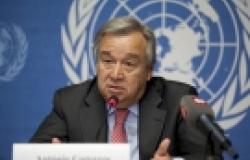Looking Back, Looking Ahead: The New Secretary-General and UN Reform

Every incoming Secretary-General is expected to make the United Nations (UN) more fit for purpose. The new Secretary-General is no exception with António Guterres under pressure to leverage his honeymoon to enact major change. Yet he has moved cautiously. His changes so far have been targeted, limited in scope, and accommodating to major powers. This raises the question of whether significant reform is likely under his leadership.
We analyze his actions since taking office and argue that it is. Guterres is positioned to use his early initiatives to facilitate more ambitious future ones. To make this argument, we provide a comprehensive review of the state of his reform agenda and investigate the geopolitical and institutional factors that shape the reform environment. Drawing on scholarly and policy research, we conclude by making three recommendations for a long-term change leadership strategy.
Policy recommendations
- Refine the overarching vision to aligns his two stated reform objectives of prevention and creating a more integrated, field-oriented UN.
- Take an incremental approach by separating future institutional reforms into three rounds targeting the Secretariat, coherence within issue-areas, and coordination across issue-areas, respectively.
- Articulate, eventually, an advocacy agenda that is composed of a limited number of intergovernmental reforms and global issues. The Secretary-General should not lead these changes but exercise his office’s agenda setting and convening power to foster the collective leadership of a likeminded coalition.
Photo Credit: United States Mission Geneva (CC BY-ND 2.0)


